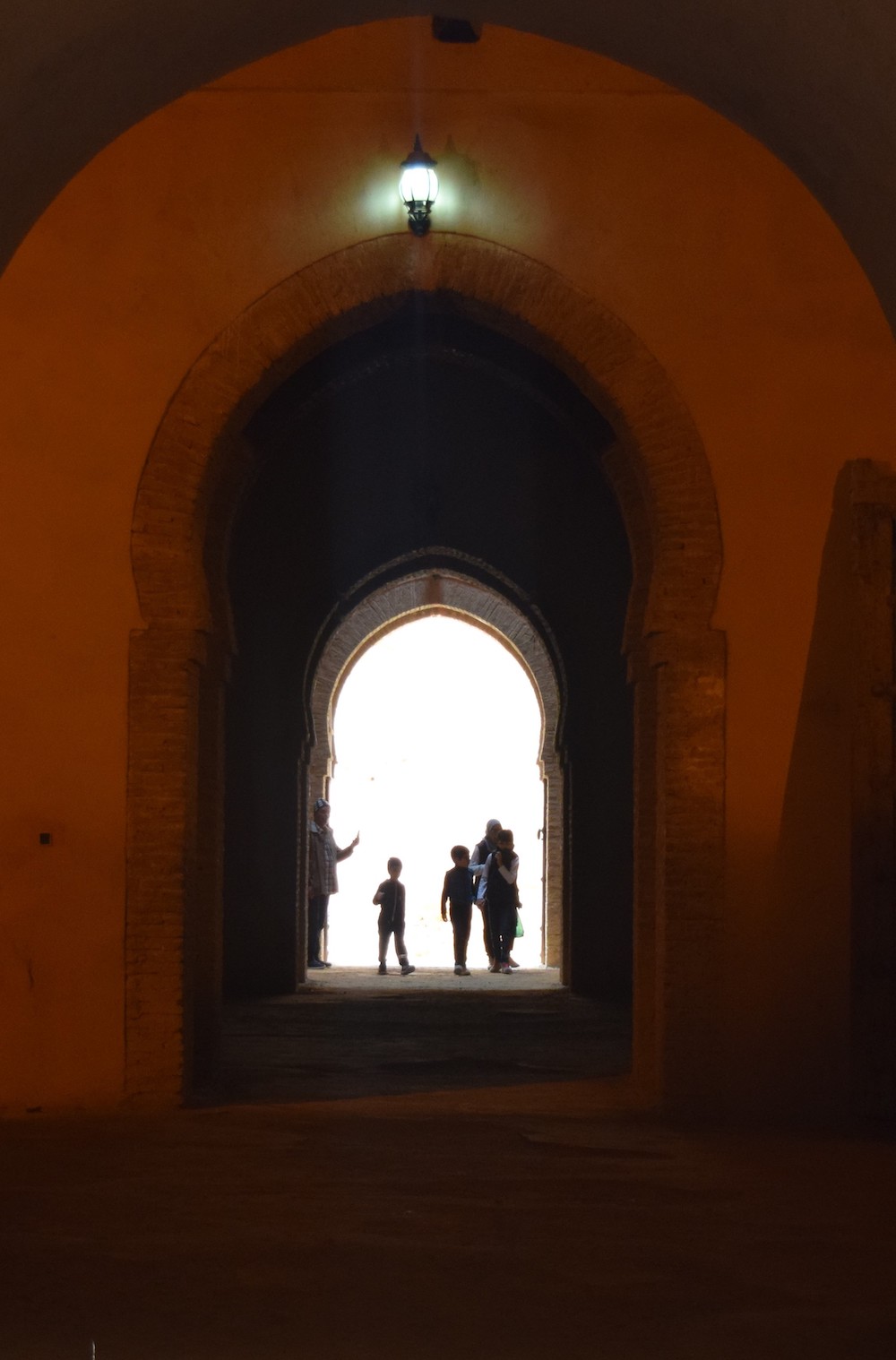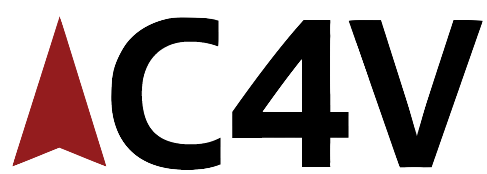Islamophobia – Tearing Down Walls of Prejudice

I was in 8th grade when a friend first mentioned “the geopolitical quagmire that is the Middle East”. You’d think that the most confusing part of that phrase was “geopolitical quagmire” but, in all honesty, I wasn’t even sure which countries were considered “the Middle East”. At that time, I never could have guessed that it would become the topic to which I would devote my future studies to, and furthermore, my entire career. From picking up a Qu’ran when I was only 15 and reading it cover-to-cover, to listening to my parents’ detailed recounts of 9/11, I was drawn to the region—the site of some of the most complex ideological controversies of the century.
Fortunately, for the 2019-2020 academic year I received the Kennedy-Lugar YES Abroad scholarship to study at a high school and live with a host family in Morocco. Although this experience was cut short for all participants due to unforeseen circumstances, I can honestly say that it was the most valuable experience of my life.
I cherish a long list of take-aways from this time, like becoming conversational in the Moroccan dialect of Arabic (Darija), or befriending dozens of Moroccan students my age while attending a local Moroccan high school. Still, what I hold closest to my heart is my relationship with my host mother, Meriem, and all that she taught me from her Muslim perspective on the world. After living with her, I was able to recognize how inaccurate my perception of Islam had been before, and I was able to view the religion as one of peace rather than one of barbaric behavior and terrorism, as my Western upbringing had led me to think.
For the majority of my time in Morocco, I lived with Meriem, her 30-year-old “niece” Imane (a close family friend who lived with her), and her daughter, Aya, who is 35 years old and disabled. Although Imane spoke French and some English, she was not home very often, and my host sister Aya was mute. Thus, I spent most of my time talking to my host mom, who only speaks Darija and one of the Amazigh dialects, as she grew up in the Atlas mountains. She taught me how to cook traditional Moroccan food like tagine and msemmen, explained why she fasted every Thursday, and (lovingly) made fun of me for owning a pet pig at home because pigs are considered unclean in Islam.
Unfortunately, while I was in Morocco a terrible tragedy occurred. Another American exchange student whom I considered to be my third brother, Jeremy Eller, was struck by a van and killed while we were on an excursion from Azrou to Erfoud, in the Atlas Mountains. He was pronounced brain dead upon reaching the hospital, and his body died less than 24 hours later. I grieve his loss every day; he was one of the most genuinely good people I’ve ever known.
Living in Morocco after his death was inexplicably difficult, but showed me just how good people can be, even when their beliefs are entirely different from my own. When I went home to Meriem that first day, I was crying violently, and she hugged me and gently asked who it was that had passed away. I told her that it was Jeremy, and she immediately started sobbing uncontrollably with me. She had met him once before, and I had told her dozens of stories about funny things that he said and did. I distinctly remember she kept shaking her head and saying, “hadha hyatt” as she cried, which means, “that’s life.” Although that would seem incredibly insensitive to the average American, I understood what she meant: she didn’t want me to be overly sad about his death – she is a devout Muslim and believes that everything is part of Allah’s plan. She was clearly deeply hurt by the accident, but her faith persisted. And, although the Qur’an says that only other Muslims go to The Garden (heaven), Meriem said that she just knew Allah would make space for Jeremy. Whether or not she believed this, the fact that she said so meant the world to me.
“That’s life” is just one of countless examples of things said to me by a Moroccan that could have been misinterpreted and taken offense at, but given the cultural context were intended to be purely kind. Unfortunately, many Westerners do not search for cultural context or even give Muslim people the benefit of the doubt. For instance, upon telling certain American and Canadian adults in my life about Jeremy’s accident, I was very disappointed to hear them say things like, “American doctors could have fixed him, I’m sure,” or “[The embassy] should have sent him to Spain for medical care instead,” even though I made it clear that he was declared brain-dead and beyond help, and the Moroccan doctors at the military hospital where he was sent are known to be some of the best in the world. These Western adults didn’t know anything about Morocco, and they assumed the country to be barbaric simply because it’s majority-Muslim. Others mentioned how careless “people in third-world countries are” in reference to the driver that hit Jeremy, even though Morocco is not a third-world country and Jeremy was hit by a French tourist breaking the speed limit in a rental van. The generalizations and assumptions made about Middle Eastern and North African culture are not only offensive to the people to whom they refer, but also made Jeremy’s death become a racially and ethnically-charged controversy and therefore took the focus away from the immense loss of one of my best friends.
The ignorance behind these statements bothered me deeply, and beyond that, American lack of understanding, fear, and disassociation with Muslim people has historically proven to have dire consequences. Think of the Iraq war that began in 2003. American President George W. Bush and UK Prime Minister Tony Blair said that the goal was “to disarm Iraq of weapons of mass destruction, to end Saddam Hussein’s support for terrorism, and to free the Iraqi people”. But what evidence did they have that Hussein was pro-terrorism and armed with weapons of mass destruction? None. All they had was an admission that Saddam Hussein himself had made in an attempt to protect his country.
Due to UN sanctions, Iraq endured stringent constraints on its procurement of weapons. Hussein did not want Iran to know of this weakness, especially since Iran’s weapons’ capabilities had increased dramatically, so he lied. US intelligence agencies did not confirm Hussein’s statement, but rather took the word of other countries such as Germany, who affirmed the claim based on no evidence. In failing to validate these claims, they failed us, our soldiers, and the Iraqi people, even if Hussein had been far from an ideal leader.
If the US intelligence agencies had just looked a little deeper, they could have found the truth: that Iraq did not possess WMDs, that Hussein had criticized Bin Laden as being a “zealot,” and that he explicitly stated his disapproval of al-Qaeda on multiple occasions. I believe that further research and fact-checking by the US could have prevented the deaths of over 4,000 American soldiers and 100,000 Iraqi military and civilians. The US shouldn’t have so easily believed that the majority-Muslim country was linked to al-Qaeda when that specific terrorist group, in actuality, threatened Hussein’s regime.
The Iraq War one of a multitude of cases in which America has harmed Muslim people based on fear and prejudice instead of substantiated evidence. Another example is from 2007, when the New York Times reported that the CIA destroyed interrogation tapes from 2005 and an investigation was launched. Daniel Jones, head of the investigation, learned that between 2002 and 2008, at least 119 detainees were captured due to their possible links to al-Qaeda and the 9/11 tragedy. These Muslim men were held in “black sites” by the CIA. Over 30% of these men were subject to torture, which ranged from slaps to waterboarding, rectal dehydration, and threats of killing their families. The CIA later admitted that at least 26 of the detainees were “wrongfully” held—in other words, innocent. The people in charge of these “enhanced interrogation” techniques acted on anger left over from 9/11, which resulted in years of detention for some innocent people, and even one death.
In America, misinterpretations of Middle Eastern and North African beliefs, culture, and words are very common. If I hadn’t frequently listened to my host mom’s beliefs at the dinner table, I would have been offended by her saying “that’s life.” In all honesty, when she first said that, it hurt me, but after I assessed the situation based on her strict Muslim values and reminded myself of all that she said about Allah having full control, and how she believed that she was purposely made a widow as a young woman, I understood her intentions and loved her all the more.
The main issue in Western society today with regards to international relations is that, instead of attempting to learn more about these different cultures, we jump to vilifying people who are different from us — specifically and most often, Muslims. These prejudices are more than just inconsiderate generalizations. They are dangerous. They kill and harm innocent people. We can only attain economic and physical security with other countries and decide which role to play, if any, in international wars if we tear down our wall of prejudices and biases.
Prejudices can be small and offensive, or large and deadly. In the end, all are dangerous. Ultimately, knowledge is the key to peace.
By Madeleine Walker, Georgetown University School of Foreign Service
Note: My friend Jeremy loved learning about other cultures, developing language skills, and making friends around the globe. He was a great kid all around, and the definition of a great ambassador. A scholarship fund was made in his name with the goal of aiding other students in their study-abroad endeavors, and any donation made will go directly to this effort. Please consider making a tax-deductible donation to the Jeremy Eller Memorial Fund today!



Leave a Comment